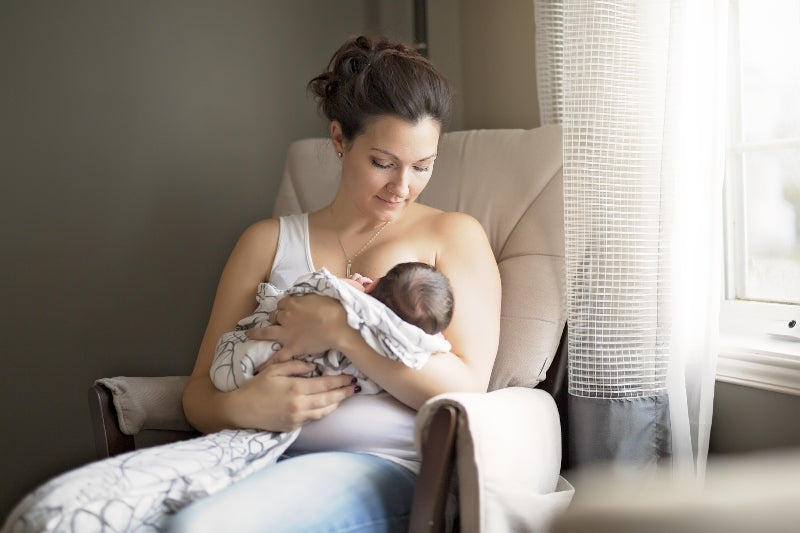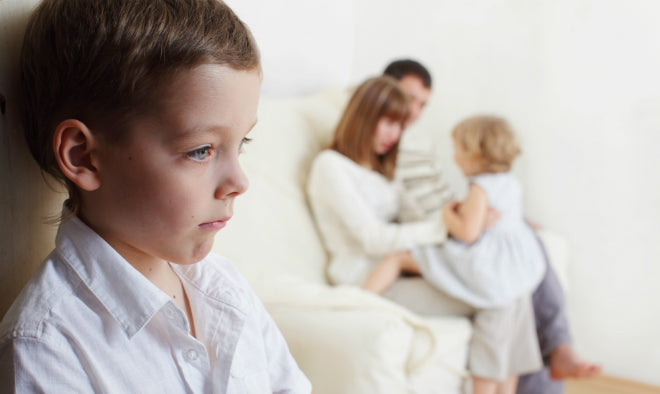" The advantages and disadvantages of different parenting concepts "
"Becoming a father is not difficult, but being a father is very difficult." Although Wilhelm Busch only referred to the father in this saying, the quintessence ultimately applies to both parents: Parenting is anything but child's play. To help you, we provide you with a compact overview of different parenting styles and explain proven parenting methods in this context.
What do you want for your children?
Parenting styles are theories that attempt to summarize parental behaviour under an overarching principle. In practice, however, it is often not theoretical parenting styles but intuition that holds the reins. Sometimes parents are simply at their wit's end. The defiant phase, for example, is a major challenge in raising children. This is when parents consult advice books, remember their own upbringing and ask friends with older children for advice. Observers also intervene in critical situations and offer their opinions without being asked. Parents' insecurity grows. Every reaction to the child's behavior seems to have its pros and cons.

Child in the defiant phase
If you are familiar with such phases, we recommend that you Think about what you want for and from your child! There are various parenting methods, all of which have their justification. However, the objective is always different. One parenting style encourages self-confidence and initiative, the other diligence and obedience. If you keep this in mind, you can see the following styles as a toolbox with different solutions for every problem.
The authoritarian style: between praise and reprimand
The authoritarian parenting style was still widespread after the war. However, it no longer corresponds to today's understanding of support and free development of children.
The authoritarian style of education is characterized by the clear position of power of the educator. They determine what should be done, what is right and what is wrong. These guidelines are made clear in clear rules. Disobedience is punished. Desirable behavior is rewarded. In this clear hierarchy between parent and child, the needs and ideas of the children are not taken into account. There is little emotional support. The focus is on performance and obedience, while self-confidence and creativity tend to be suppressed.

Mother scolds child
This behavior, also known as "parental dictatorship", culminates in an autocratic style. Here, even praise is omitted and any empathy towards the children is undesirable. All educational behavior is aimed solely at weaknesses and punishments. Studies have shown that the authoritarian style leads to more aggressive behavior in children. It is his only way of expressing opposition to superiority. He also develops a very self-centered perspective, which is reflected in egocentric formulations with frequent "I" and "my".
Laissez-faire: raising children with minimal input
This form of child rearing is the absolute opposite of the authoritarian style. Rather than constantly controlling children's behavior, an egalitarian attitude prevails. The parents leave it up to the children to decide what they want to do. There are no guidelines and no rules. The educators aim to use as little energy as possible. In extreme cases, also known as the "negating style", there is no interest in the children at all. They are left entirely to their own devices and their development is left to chance. Even the defiant phase is harmless because nothing can be resisted.

When children are left to their own devices
As the teachers do not provide a framework, the children are often very insecure. They lack support. People who have been brought up in a laissez-faire or even negative way have major problems in adulthood. They find interpersonal relationships very difficult because they have never learned how to deal with them. At school and at work, they come into conflict with rules and boundaries that are completely unfamiliar to them. They are also more prone to criminal behavior and drug and alcohol abuse.
Anti-authoritarian: the happy medium
This style of education began in the 1960s as a counter-movement to the prevailing authoritarian guiding principle. The aim was to respond more to the needs and wishes of the child. After obedience and respect, a self-confident personality, a sense of community and independence were now the focus of child education.

An open and mixed parenting style
In practice, anti-authoritarian parenting means that although there are boundaries and rules, these are set so broadly that they hardly restrict the child. In case of doubt, however, compliance is consistently demanded. Within this framework, the focus is on the child making independent decisions. They should take responsibility for themselves and their behavior. The teachers remain in contact at all times and provide emotional support. They behave in an appreciative manner and also make suggestions.
Nowadays, this educational approach is almost taken for granted.
It has been shown to help children become more independent and successful in adulthood. However, it becomes problematic when no clear boundaries are set. Some parents misinterpret anti-authoritarian parenting in this sense and do not set any rules at all. This in turn leads to selfish and inconsiderate behavior on the part of the offspring.
The democratic parenting style
The so-called "democratic" style has emerged from the anti-authoritarian approach. It sees the child as an equal member of the group. All decisions are made jointly. This leads to lengthy argumentation, which in turn promotes intellect, verbal expression and self-confidence.

Modern: The democratic style of education
For educators, this style of education often involves a great deal of time and patience. However, they can steer events a little by providing suitable suggestions or opportunities for discussion.
A comparison of parenting styles
In the presentation of the individual parenting styles, it has become clear which priorities are set for the child's development. The authoritarian style, for example, wants obedience and submission above all, while laissez-faire focuses on self-development and the anti-authoritarian parenting style is committed to promoting social skills. Each of these parenting methods can also have negative consequences. These range from aggression and lack of independence in the authoritarian style to a lack of social skills in the laissez-faire style and egomaniacal behavior in anti-authoritarian parenting.
Parenting methods in practice
In practice, a balanced mix of the different parenting styles makes the most sense. The appropriate approach depends on both the age of the child and the situation at hand. For example, it makes little sense to discuss the pros and cons of sufficient sleep with a toddler in the defiant phase. With a 14-year-old, this is more appropriate. You can also negotiate with a teenager about the amount of time they spend playing computer games. However, whether he needs to wear a seatbelt in the car should not be up for debate.

Enjoying parenting together
An important point in any upbringing is to approach the child with an appreciative and open attitude. There is no point in clinging to certain principles. Authenticity, on the other hand, is much more important. Parents are not perfect people. Children are allowed to experience this.
The democratic style forms a solid basis for this. However, our social structures repeatedly demand the acceptance of certain laws. This lesson must therefore also be taught in childhood. Ideally, this should all take place in a loving environment in which praise and recognition play an equal role.










